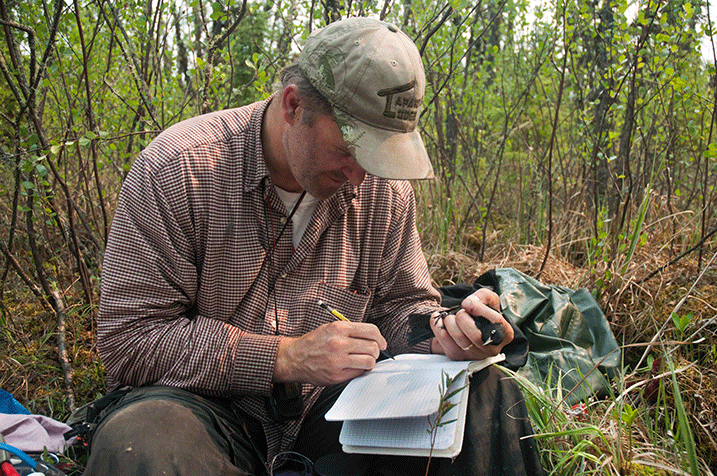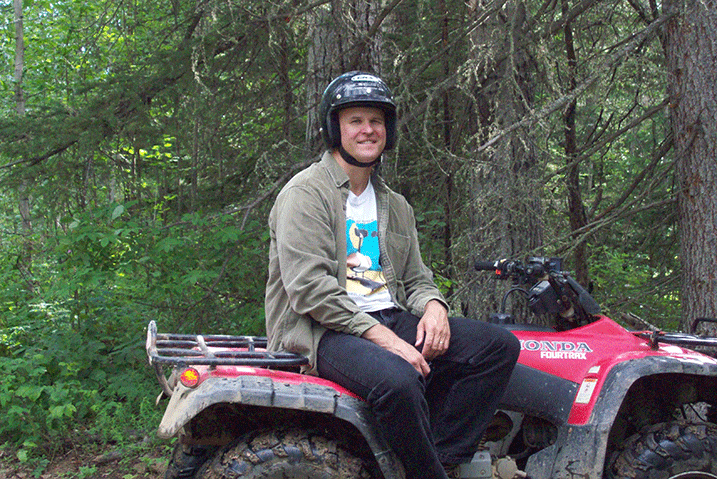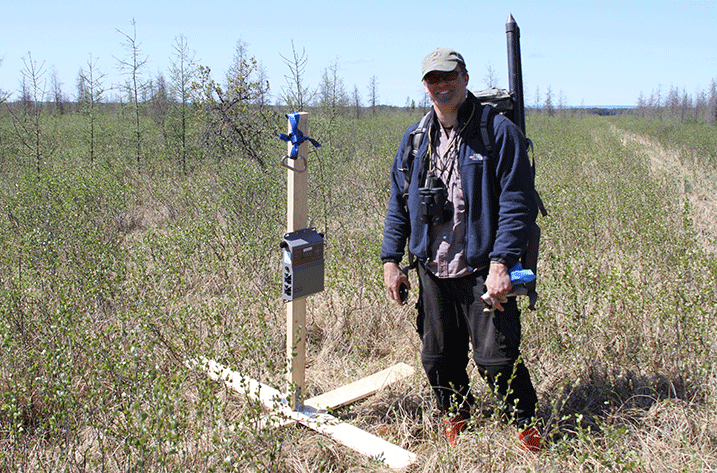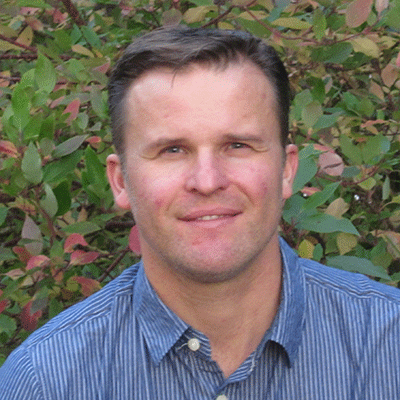An alumnus who got his start studying biology at Luther College ‘s High School and University campuses is now doing his part to improve the future of our environment and the role humans can have in this improvement.
Erin Bayne (HS ’88, U’93) is a professor at the University of Alberta (U of A) in the Department of Biological Sciences. He graduated with a Bachelor of Science in Biology from Luther College, and then went on to get his Masters and PhD in Biology at the University of Saskatchewan. In his position at the U of A, he teaches three classes and supervises a large lab of researchers studying wildlife biology and human impact on wildlife.
Growing up, Erin always loved the outdoors. He developed a great appreciation for the environment and wilderness, and so biology seemed a natural choice as a field of study when he got to university.
“I grew up in Saskatchewan, and had a farm and a cabin and was always interested in the outdoors,” indicates Erin. “I happened to take a course in biology by a very enthusiastic instructor at the University of Regina, and kind of showed me there is a different way to look at the world. So I got very excited. I got to go outside a lot and do cool things with animals, so it was a very exciting way to learn.”
The hands-on, outdoors learning that Erin enjoyed during his studies has continued into his career. For Erin, this is one of the highlights of working in the field that he does. “I have been able to work all over North America,” says Erin. “I get to spend weeks to months out in the wilderness, studying these animals, getting to know the environment they live in, getting an appreciation for how big North America is.”
One particular area of study for Erin is birds and the importance of our Northern forests as a habitat for bird species. He recently appeared on CBC’s The Nature of Things in a documentary called “Songbird SOS.” The documentary explores the role of humans in the declining populations of songbirds, and in one segment of the program, Erin explains how industry is affecting a bird nursery in the boreal forest north of Edmonton. “Whether it’s energy development, agricultural development, forestry, or windows, all of these things are adding up and they are having a negative effect on the species of birds. As a consequence, lots of birds are declining worldwide,” says Erin.
One of Erin’s goals as a biologist is to find ways that resource development can happen with less of an impact on the environment and on the birds who depend on that environment. The group of researchers he supervises at the U of A hope that their studies of wildlife biology will provide the information that will allow humans and birds to coexist. “We hope to provide information for governments and society as a whole. My goal is to provide the information people need to make good decisions about their environment and their lives.” explains Erin.
Remembering Luther
Erin took his first biology class at Luther College High School with Mr. Brooks, who introduced him to biology concepts, and encouraged him to push himself in the subject. His experiences studying biology in high school piqued his interest to pursue studying it at the university level.
Although many of the classes required for Erin’s undergraduate program were not offered through Luther, having Luther as a “home-base” proved useful for him within the larger institution of the University of Regina. Luther’s close-knit community provided Erin with many opportunities to interact with people on a one-on-one basis.
Luther’s Liberal Arts classes were also an important part of Erin’s university education, because they gave him a grounding in and an understanding of human perspectives. “I interact with people ranging from CEOs of energy companies to people living in a community whose livelihood is hunting and fishing,” says Erin. “You get totally different perspectives about what the environment is all about and what we should be doing about it when you meet with those people.”
Alumni Bio
Name: Erin Bayne
Year of Graduation: 1988 – Luther College High School; 1993 – Luther College at the University of Regina
Education: Bachelor of Science in Biology; Masters and PhD in Biology at U of S; Post Doc at University of Alberta



